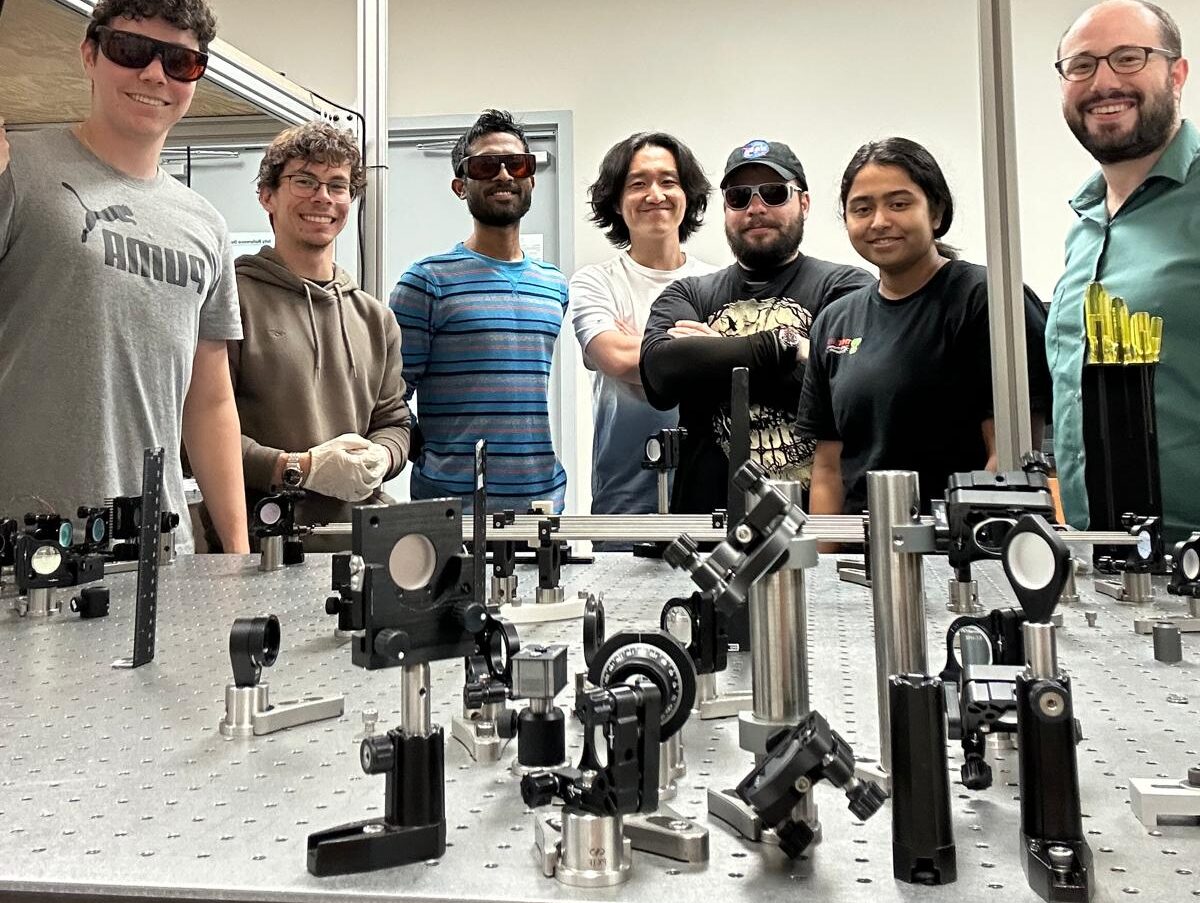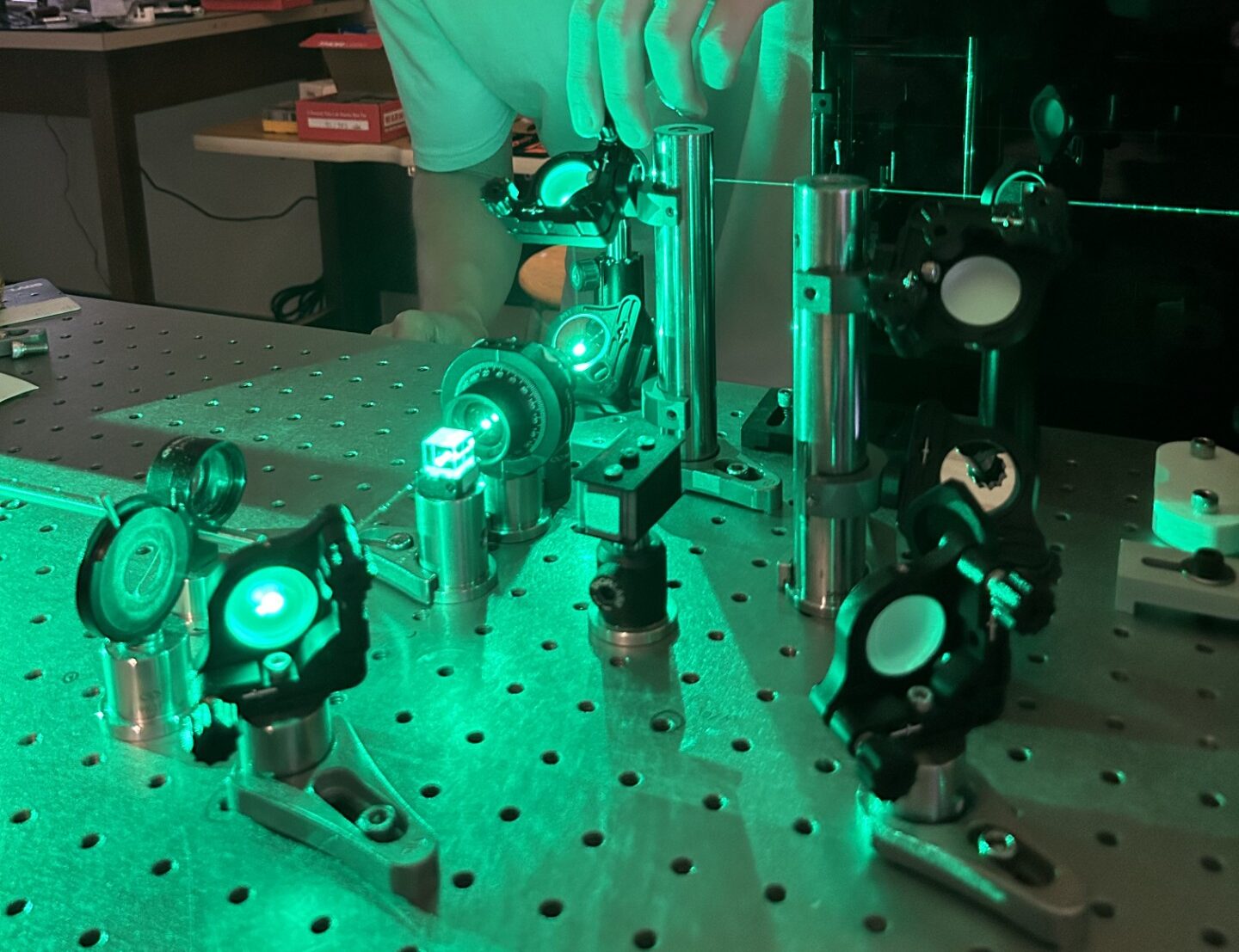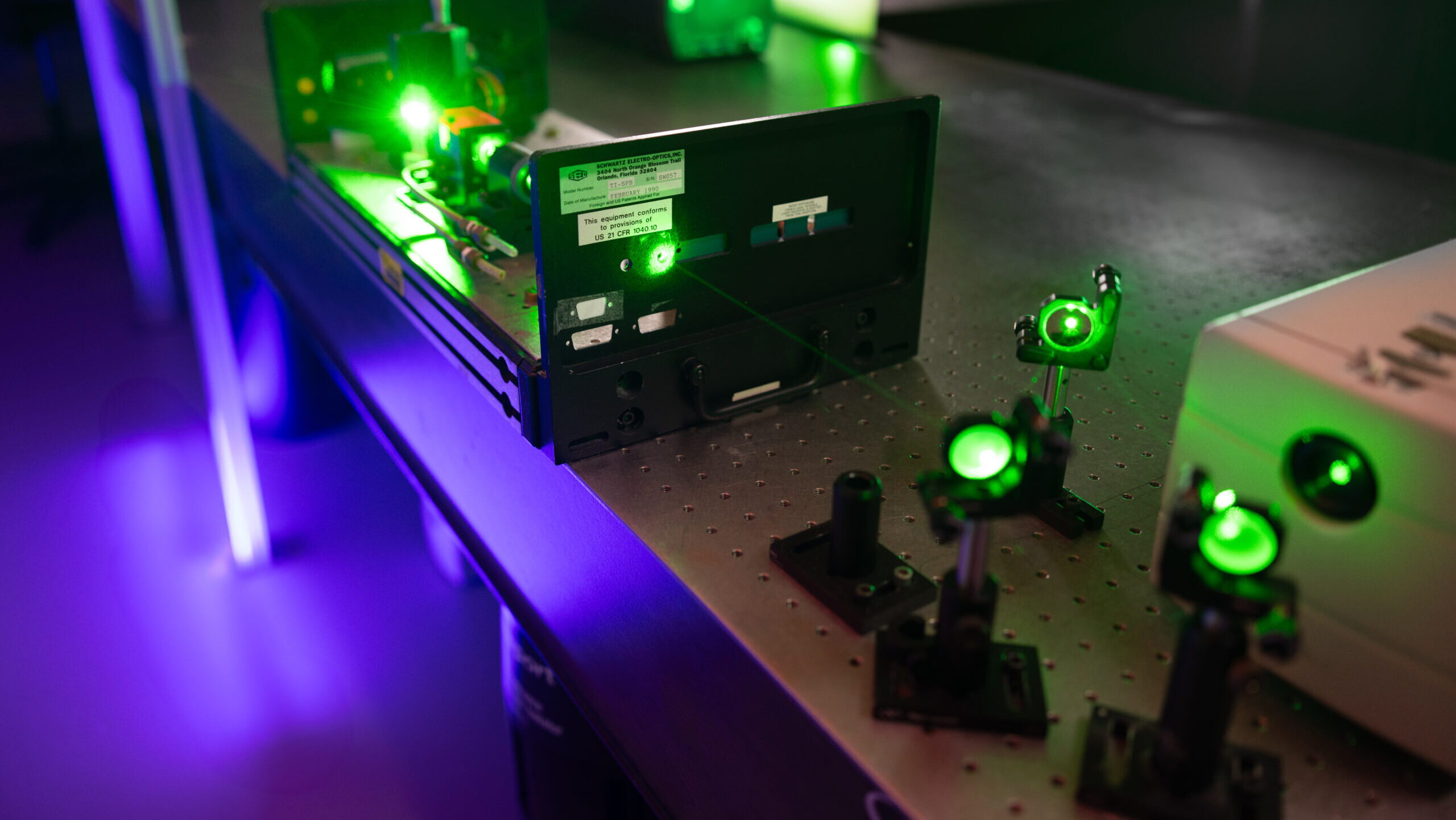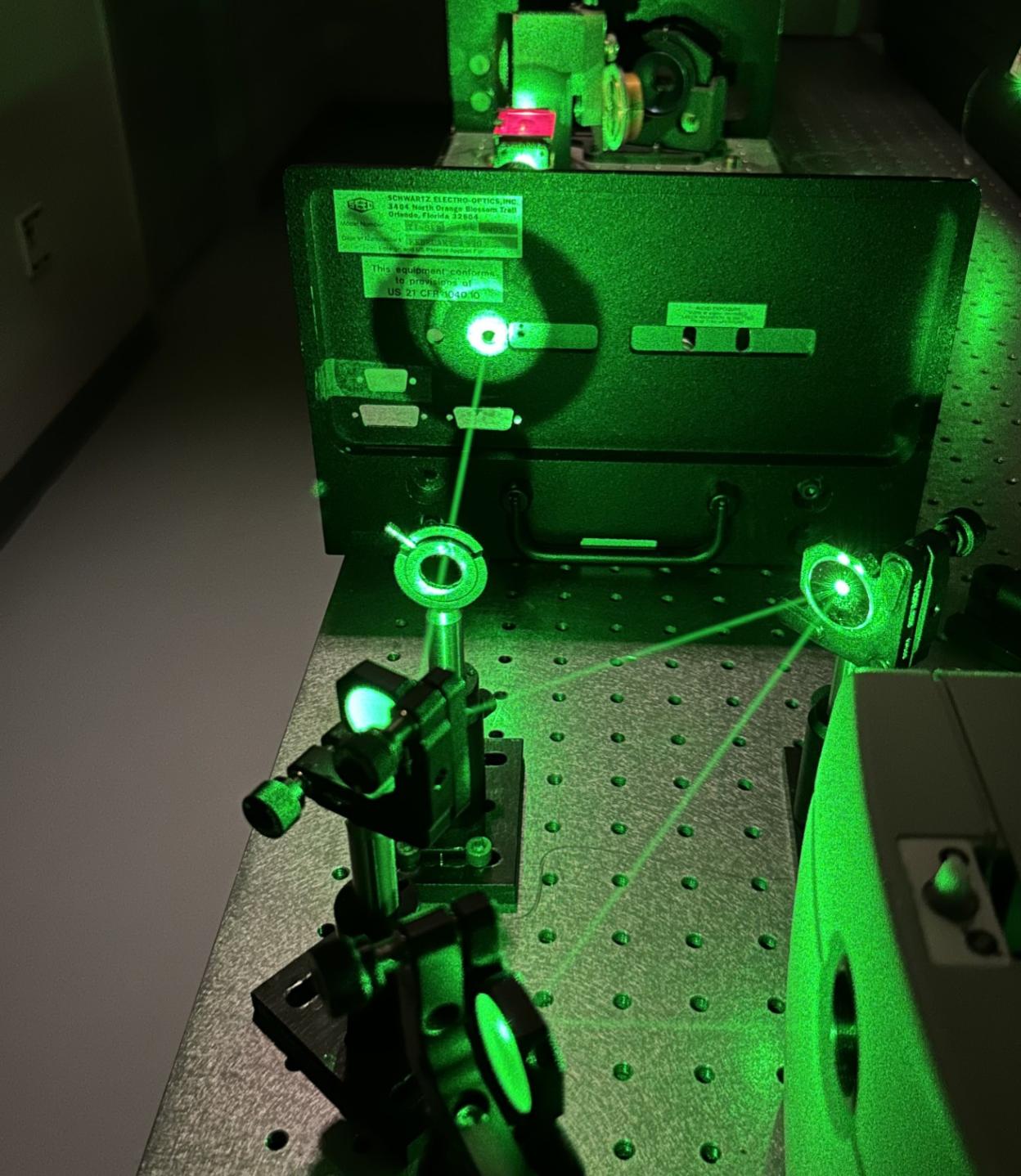Welcome to the Quantum Nonlinear Photonics Group
The Quantum Nonlinear Photonics Group is led by Professor Yannick Salamin at the University of Central Florida (UCF). Students and researchers have the unique opportunity to not only learn and explore theoretical aspects of Nonlinear and Quantum Optics, but also develop experimental systems to study them, and to apply these new concepts to drive advancements in computing and metrology.




Unraveling the Mysteries of Light
We are developing new concepts and theoretical frameworks to deepen our understanding and expand the capabilities of nonlinear and quantum optics. Combining analytical and numerical modeling, we investigate diverse physical phenomena, including controlling the statistical properties of multistable systems, shaping the mean-field and quantum behavior of multimode nonlinear systems, and nonlinear topological effects enabling nonreciprocal frequency conversion. Informed by experimental data to refine and validate our models, we aim to uncover novel physical principles and drive the development of transformative photonic and quantum technologies.

Building Experimental Systems to Explore Quantum Frontiers
We develop cutting-edge experimental platforms to explore and harness nonlinear and quantum optical phenomena. Our research spans a broad range of optical systems, including continuous-wave and pulsed laser systems, as well as optical parametric oscillators and amplifiers. We focus on developing techniques to generate and characterize quantum states of light, probing quantum correlations and entanglement in multimode systems such as optical frequency combs, and studying the dynamics of multistable optical systems. Our experimental platforms leverage both free-space optics and advanced on-chip integrated systems to drive fundamental discoveries and pave the way for innovative applications in quantum science and photonics.

Turning Ideas into Tomorrow's Technology
We apply our innovative concepts and systems to transformative applications in computing and metrology. We explore innovative approaches such as computing with probabilistic elements to enable energy-efficient, high-speed machine learning systems, and developing advanced quantum tomography techniques to investigate cavity quantum states of light and their dynamics. Our work seeks to bridge fundamental research and practical applications, driving advancements in next-generation photonic and quantum technologies.
Contact information: